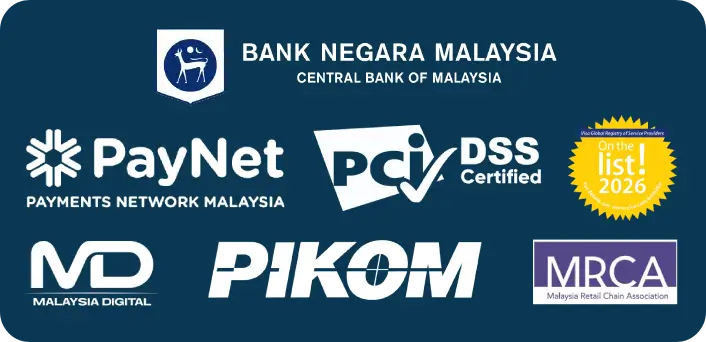
Disclaimer: This article is intended for informational and educational purposes only. It does not constitute financial, legal, or investment advice. Readers should seek professional guidance before making any financial or business decisions. References to any company, brand, or product are for illustrative purposes only and do not imply endorsement or partnership unless explicitly stated otherwise.
Across Malaysia, the way money moves is changing. From QR payments to instant online lending, technology is reshaping how businesses and consumers manage finances.
Fintech, short for financial technology, refers to the digital innovations that make financial services faster, more accessible, and more efficient. It covers everything from e-wallets and online banking to accounting automation and data-driven lending.
In Malaysia, fintech isn’t just a buzzword. It’s a key driver of the country’s digital economy, supported by Bank Negara Malaysia, MDEC, and MyDIGITAL initiatives aimed at boosting inclusion and competitiveness.
The following table highlights the main fintech sectors in Malaysia, what they offer, and how each benefits growing businesses.
Fintech in Malaysia: Key Sectors and What They Offer
Fintech Sector | Best For | Key Features | Benefits for Businesses | Examples in Malaysia |
Digital Payments & Gateways | Merchants and service providers | QR payments, card integration, e-wallet support | Faster checkout, lower fees, easier reconciliation | Paydibs, Boost, Touch ’n Go eWallet, GrabPay |
Peer-to-Peer (P2P) Lending | Growing SMEs needing quick financing | Online application, data-driven credit scoring | Fast approvals, alternative access to credit financing | Funding Societies, CapBay |
Digital Banking & Neobanks | Businesses seeking full online banking | No physical branches, 24/7 account access | Simplified banking, reduced administrative costs | GXBank, AEON Bank |
Insurtech | Risk management & employee coverage | App-based policy management, instant claims | Affordable protection, transparent policies | PolicyStreet, Fi Life |
Accounting & Financial Tools | SMEs managing cash flow | Cloud bookkeeping, invoicing, real-time analytics | Better cash control, enhanced tax compliance | Financio, QuickBooks |
Cross-Border Payments | Exporters & regional traders | Multi-currency support, real-time settlement | Easier regional trade, faster settlements | Paydibs, BigPay, Wise |
What Is Fintech and Why It Matters Now
Fintech means using technology to deliver financial services faster, smarter, and more securely.
It includes everything from mobile payments and digital banking to AI-powered lending and automated accounting. In Malaysia, fintech has become a cornerstone of the country’s MyDIGITAL agenda driving financial inclusion and helping businesses digitise operations.
Fintech solutions are now embedded in everyday transactions. Whether paying suppliers via QR code or offering customers flexible checkout options, businesses rely on fintech to operate efficiently in a cash-lite economy.
How Fintech Transforms Business Operations
Fintech helps companies streamline financial tasks and improve decision-making in real time.
Digital payment systems eliminate cash handling, speeding up settlements and reducing reconciliation errors. Automated bookkeeping and invoice-matching tools integrate directly with payment gateways and accounting software, saving significant time and reducing manual errors.
Access to financing has also evolved. With fintech platforms, businesses can apply for loans or credit facilities online and approvals may be faster compared to traditional methods, depending on provider policies. rather than waiting weeks through traditional channels. These innovations create agility, which is vital for businesses adapting to changing market demands.
The Fintech Landscape in Malaysia
Malaysia’s fintech ecosystem is expanding rapidly, guided by innovation and regulatory oversight.
The Bank Negara Malaysia (BNM) Fintech Regulatory Sandbox allows licensed firms to test new solutions safely, while agencies like MDEC and SME Corp support digital adoption across industries.
Key fintech sectors include:
- Digital payments: Paydibs, Touch ’n Go eWallet, GrabPay, Boost, and ShopeePay.
- Lending and P2P financing: Funding Societies, CapBay.
- Insurtech: PolicyStreet, Fi Life.
- Digital banking: GXBank, AEON Bank.
Among these, Paydibs stands out as a home-grown Malaysian payment facilitator offering secure, omnichannel solutions that bridge merchants, banks, and e-wallets. Its integration with major local payment options makes it easier for businesses to operate seamlessly across platforms.
Benefits of Fintech for Businesses
Fintech levels the playing field by giving businesses enterprise-grade tools at affordable costs.
1. Lower transaction fees
Digital payments may offer more competitive rates depending on provider and payment method
2. Faster payments
Instant settlements through gateways and e-wallets improve cash flow and supplier relations.
3. Easier access to financing
Digital credit scoring enables faster, fairer loan approvals for growing enterprises.
4. Better data insights
Smart dashboards analyse sales, expenses, and payment trends, helping owners plan with confidence.
5. Greater customer reach
Integrated e-commerce and QR payment tools allow companies to serve both in-store and online buyers effortlessly.
Challenges and Considerations
Fintech adoption also comes with responsibilities.
Data protection, cybersecurity, and compliance are critical. Working with licensed payment providers ensures that customer transactions meet local regulatory standards. Businesses should also review privacy policies, encryption standards, and fraud-prevention systems before onboarding any fintech solution.
Building trust matters as much as technology. Customers are more likely to engage when they know their payments are secure and their data is handled responsibly.
The Future of Fintech in Malaysia
Fintech will keep evolving alongside AI, blockchain, and open banking initiatives.
Emerging trends include:
- AI-driven financial management for predicting cash flow and automating risk assessments.
- Open banking APIs that let apps connect securely with bank data to offer tailored financial services.
- Cross-border payment integration, enabling SMEs to trade regionally without currency friction.
- Embedded finance, where non-bank platforms like marketplaces offer loans, insurance, or payments natively within their apps.
Malaysia’s government continues to prioritise digital inclusion, ensuring that small and medium enterprises can access financial tools once reserved for large corporations.
Conclusion: Building a Smarter Business Future with Fintech
Fintech goes beyond apps and e-wallets, it’s about empowering businesses to operate smarter, faster, and more transparently. As Malaysia’s digital economy accelerates, financial technology will remain the bridge between opportunity and growth.
Partnering with trusted fintech providers like Paydibs payment gateway Malaysia helps businesses simplify transactions, stay compliant, and create seamless payment experiences for their customers online or offline.
By embracing fintech today, you’re not just keeping up with innovation, you’re shaping the future of how business gets done in Malaysia.
Frequently Asked Questions About Fintech in Malaysia for SMEs
What is fintech?
Fintech refers to technology-driven financial services such as digital payments, online banking, lending, and insurance.
How does fintech help businesses?
It automates payments, improves cash flow, and gives easier access to financing.
Is fintech regulated in Malaysia?
Yes. Bank Negara Malaysia oversees fintech activities through its Financial Services Act and Regulatory Sandbox.
What are examples of fintech in Malaysia?
Examples include Paydibs, Boost, GrabPay, ShopeePay, and more.
How does fintech improve payment efficiency?
It enables real-time transactions, QR payments, and integrated gateways that reduce delays and costs.
What’s next for fintech in Malaysia?
Expect growth in AI-powered finance, open banking, and cross-border digital payments.
Recent Posts
Categories
Our Partners :





Paydibs is a leading payment solutions provider committed to simplifying transactions for businesses of all sizes.

